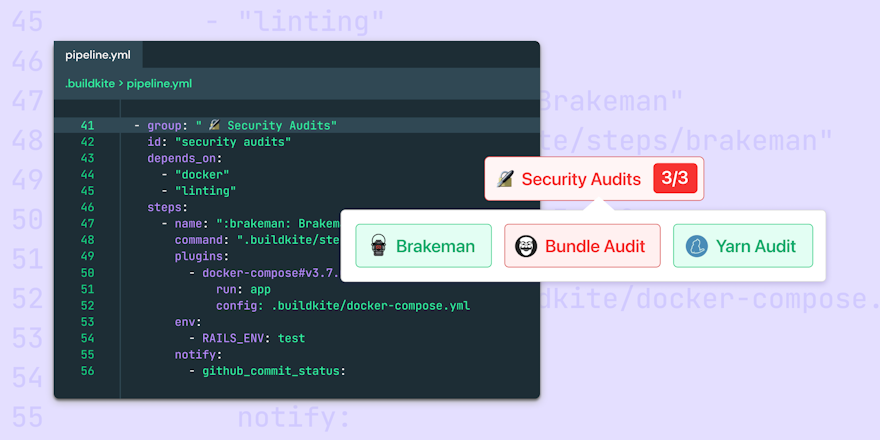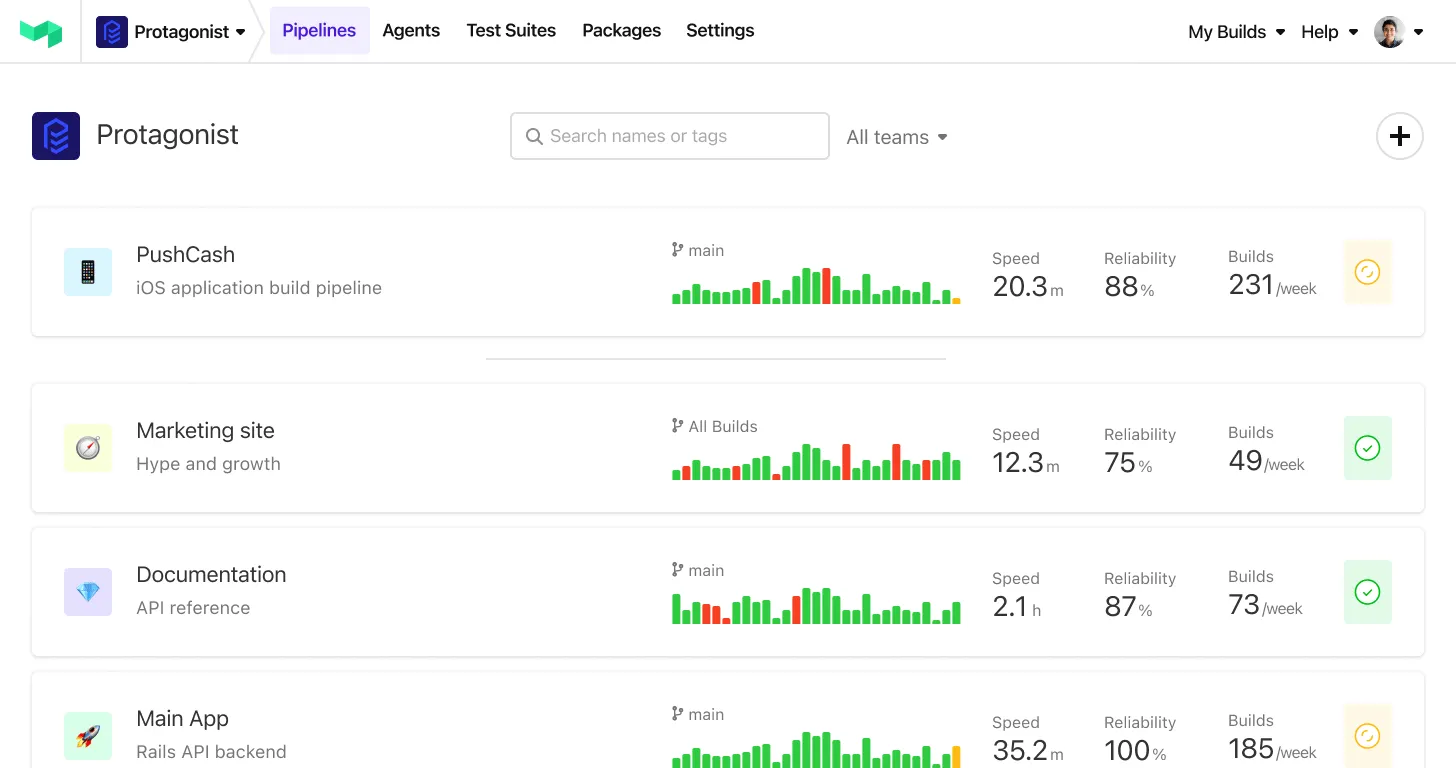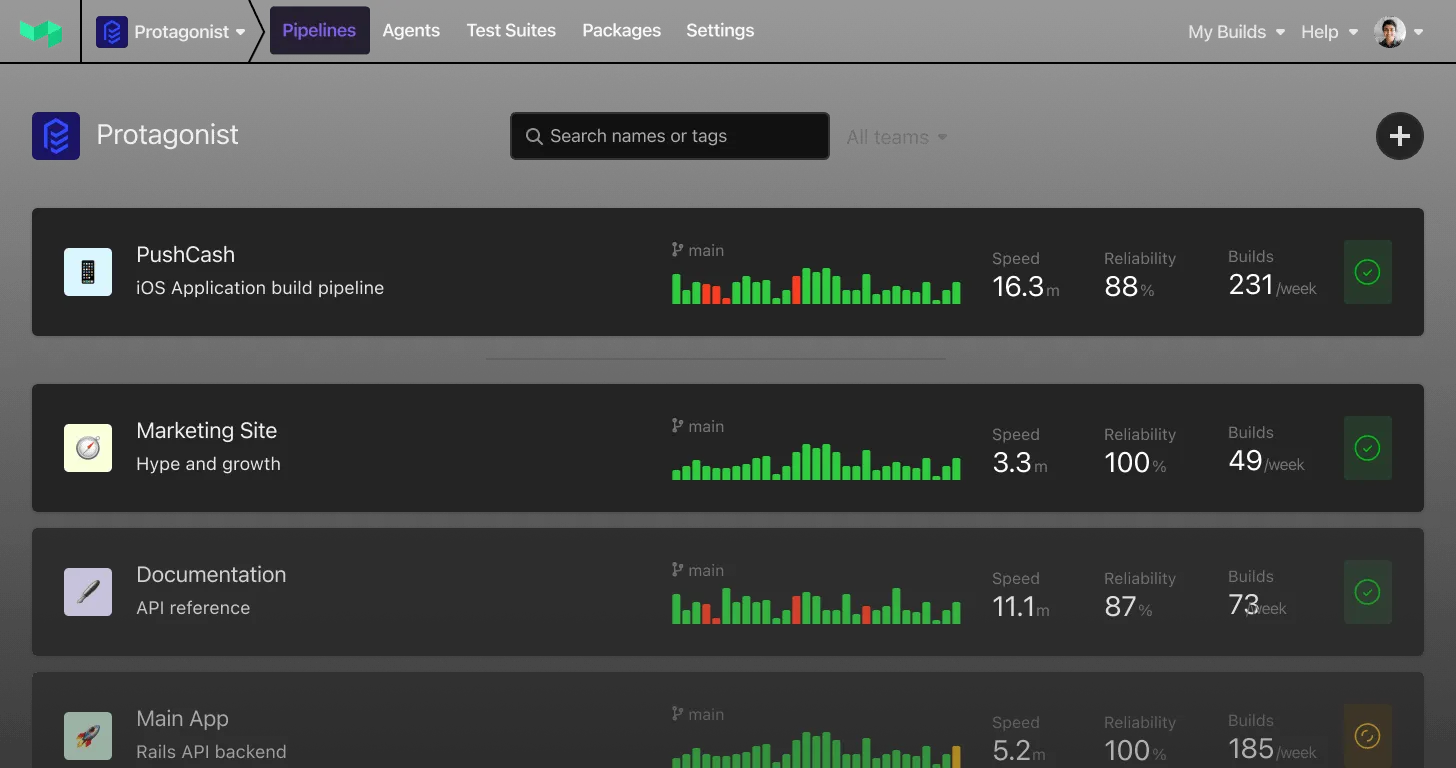Getting data into pipelines can be hard. Instead of wrangling APIs and chatops, you can now add custom forms directly to your Buildkite pipelines 🙌🏻 Getting input from your team has never been easier.
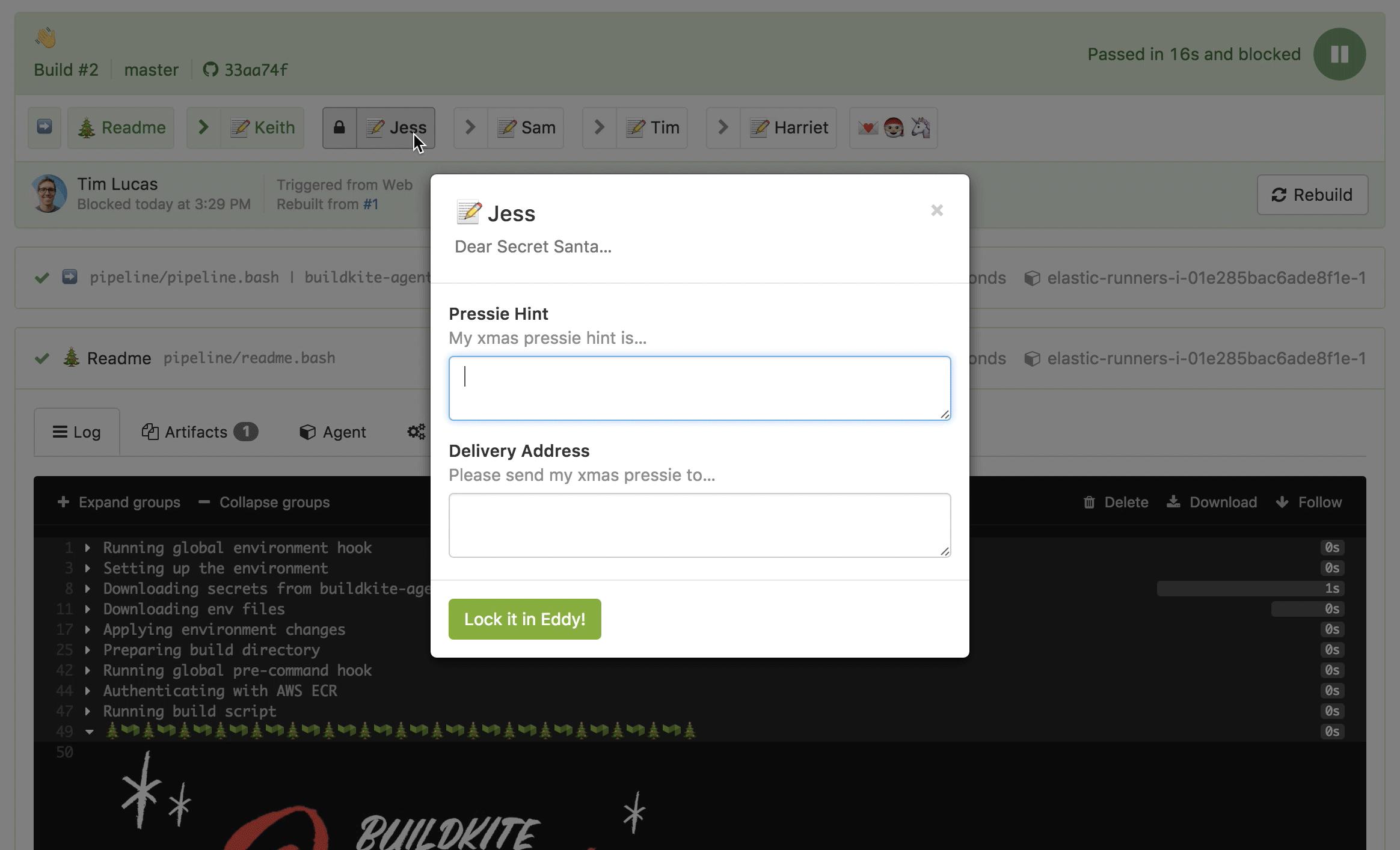 Screenshot of the Buildkite Secret Santa block step input fields
Screenshot of the Buildkite Secret Santa block step input fields
Sounds great, but what can I actually use this for?
- 🖥 Choosing an environment before running a deployment script
- 💭 Dynamic questions based on pull request content
- 📑 Automation of team onboarding, offboarding, and other workflows
- 💥 Checking that you really do want to go through with that Friday afternoon deployment
- 🚀 Adding a name, version, and changelog to a release
We even used it to automate our team’s Secret Santa 😄🎄🎅🏼
Adding an input field to your pipeline
- Add a block step to your pipeline.yml file.
- Provide it with a prompt attribute, and at least one field attribute. For example:
1 2 3 4 5- block: "Question!" prompt: "Please answer this important question" fields: - text: "What day is it today?" key: "day-of-the-week"
- Create and run a new build on your updated pipeline!
The data that the user enters into the form is then available on subsequent steps from the build meta-data! 😱
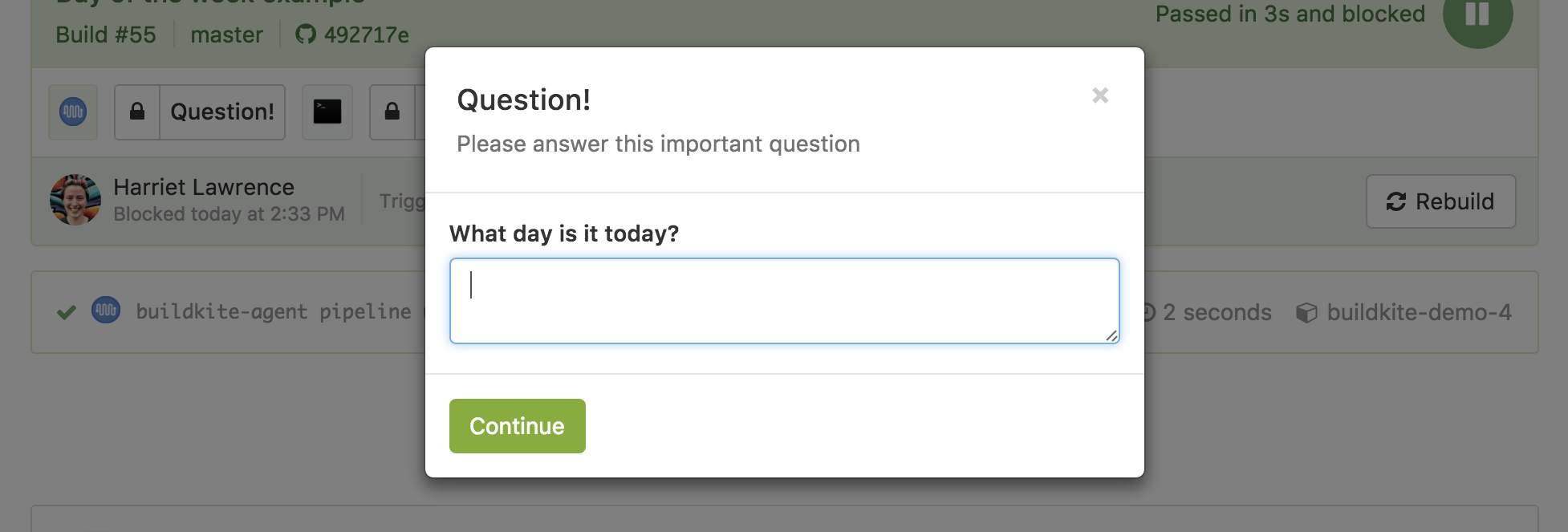 Screenshot of the block step input field example
Screenshot of the block step input field example
To explore a pipeline with a block step and input fields, take a look at our example repository: https://github.com/buildkite/block-step-example
Check out all of the available input field options over in our documentation. We’d love to hear what you think! Say hi on twitter, or send us an email.
